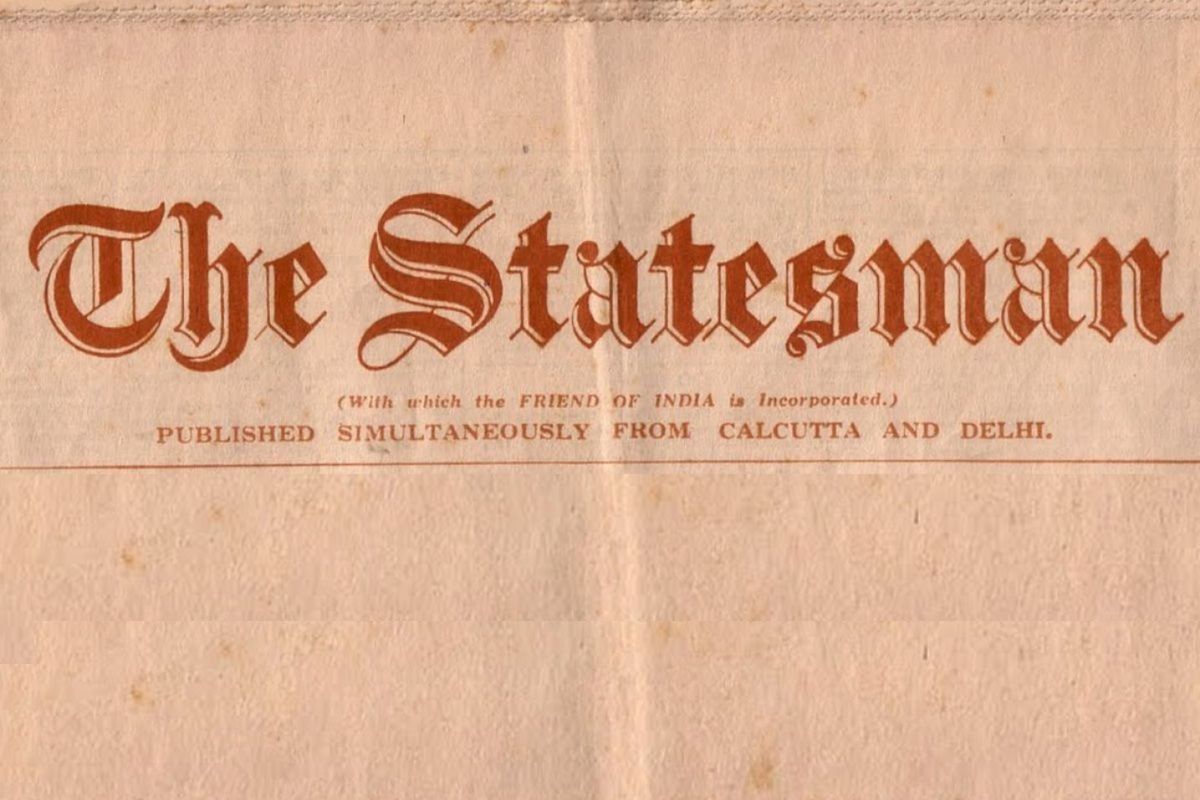The Statesman Awards for Rural Reporting
The Cushrow Irani Prize for Environmental Reporting is given for exceptional reportage on the environment published in 2023 in any newspaper, periodical or website.
On this day a century ago, these were some of the news items The Statesman readers got to read about India and the world.

OCCASIONAL NOTE
From the Daily Telegraph’s forecast of the Cabinet’s latest scheme for settling the Irish question, it will be seen that, so far as it goes into details, it follows with great fidelity the programme outlined a few months ago by the Times. This programme made full provision for self-government for Ulster, and it is refreshing to learn, on the authority of Mr. P.S. O’Hegarty, writing in the Irish World, that Sinn Fein is quite willing to assent to the provincial independence of Ulster, on certain conditions. “The Province of Ulster was self-governing until the Treaty of Mellifont in 1603,” says Mr. O’Hegarty who is of course a Sinn Feiner, “and there is no reason why it should not resume that status when Ireland once resumes her sovereignty.” One is almost tempted to say with Mr. Asquith, “we are getting on,” but one’s hopes are dashed when one comes to the main condition upon which Mr. O’Hegarty, or rather the Sinn Fein party, is willing to extend this benefit to the northern province. “Ulster,” he sternly lays down, “has to accept the federal constitution of the historic Irish nation.” In other words, Ulster must subscribe to the policy and methods of Sinn Fein, which is certainly doing its utmost to revive the universal anarchy in which the historic Irish nation was discovered at the opening of its authentic history. The outlook for Ulster is thus as cheerful as ever.
INDIAN SUGAR COMMITTEE
Advertisement
The Indian Sugar Committee inspected the Pilibhit sugar factory and the Shahjahanpur agricultural farm and the Rosa sugar factory. Mr. Simmons, manager of the Rosa sugar works, stated that he had been stationed in the district of Shahjahanpur for 30 years. The firm with which he was connected commenced the manufacture of sugar in 1844. He described the arrangements under which the cane required for the factory was obtained, and produced a copy of the agreement which was entered into with individual cultivators of canes. An advance of Rs 30 was made to cultivators when the cane was 6 inches to a foot high, and a further advance of Rs 18 per acre when the crop was more or less assured. The crop was of course paid for at the full market rate, and the advances were free of interest.
THE GUN TRADE
In Arms and Explosive, the periodical of the gun trade, we find the following description of the present position of the gun industry in Birmingham:- Full up with orders, heaps of opportunities for continuing progressive work, and yet nothing doing. This is the impression gained by a visit to the Birmingham gun trade. Labour is scarce but in many instances a full week’s work is not being done, the present earning powers of the workers being that three days’ work produces enough income for a living wage. Many workmen have forsaken their original trade for the higher money to be had in the automobile and aeroplane works – Coventry having absorbed a considerable number of skilled men. The gun trade is practically standing still, and adopts an attitude of nervous derision towards any scheme for mass production of cheap guns by machinery.
SALT ADMINISTRATION IN BOMBAY
BOMBAY, NOV 11
The report on the administration of the Salt Department for 1918-19 states that the total production of salt in Bombay Presidency was nearly 166 lakhs of maunds, as against 113 lakhs of maunds in the previous year, and the net receipts of the Department rose from Rs 132 and one fourth lakhs to Rs 154 and three fourth lakhs. The increased output was due to an extension of works and better labour supply, but the influenza epidemic prevented the full programme being worked up to. Sea salt, mainly produced within 30 miles of Bombay, also showed a largely increased output, although the influenza and cholera outbreaks hindered the work. New Bhandup salt-works are making good progress towards a full out-turn. The average retail price of salt was very high, especially in inland districts.
GOODS FROM GERMANY
An Edinburgh correspondent writes: In Germany traders are anxious for the immediate resumption of their export business to this country, and accordingly many inquiries are being received by British ship-owners regarding rates of freight. Direct traffic cannot be at once reopened, but already small consignments of German manufactured articles are reaching this country through Dutch ports. One such shipment consisting of glassware and wetstones, has been brought to Leith through Holland. It is said the Germans had apparently not anticipated that restrictions upon imports into Britain would be so soon removed, and were not prepared to take immediate advantage of the new conditions.
Advertisement